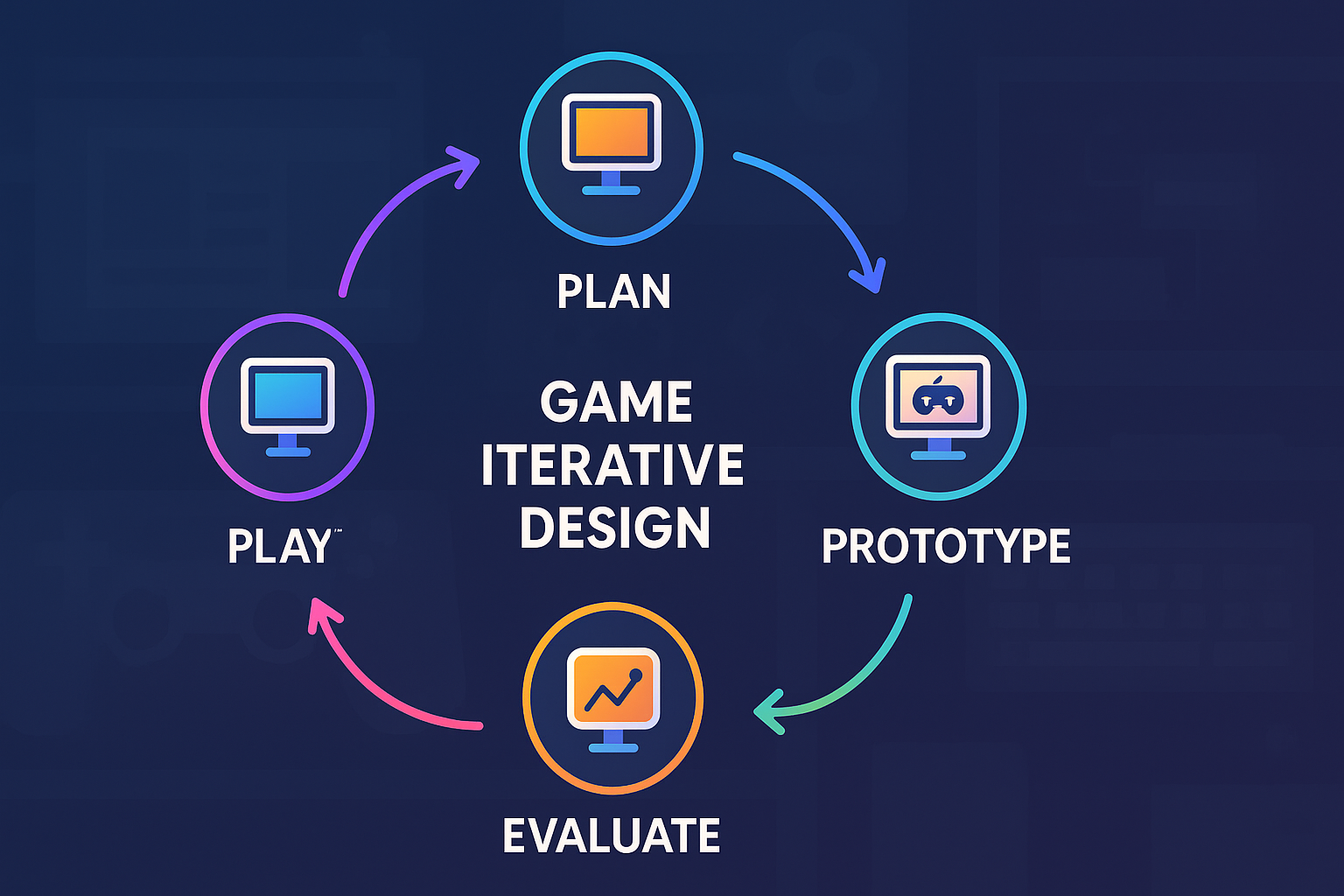Understanding What Game Design is Iterative Means: Mastering Your Development Approach

April 29
At Tunica Tech, we understand that creating truly engaging games is an evolutionary process. That's why we champion iterative game design, a dynamic approach that shapes development around feedback and refinement. Instead of relying on rigid upfront plans, we embrace cycles of building, testing, and adapting to deliver experiences players genuinely enjoy.
What Makes Iterative Design Effective?
Iterative design fundamentally shifts away from traditional, linear "waterfall" methods and the often-unrealistic expectation that a game can be perfectly designed and documented upfront before building begins. Our game Scoop, developed for Android and iPhone using React Native, is a prime example of a project that benefited significantly from this approach. Its effectiveness comes from embracing a cyclical process with several core strengths:
- Rapid Prototyping: Quickly creating playable versions allows core mechanics and concepts to be tested early and often.
- Continuous Feedback: Incorporating playtesting throughout the entire development process, not just at the end, gathers crucial player insights when they are most actionable.
- Adaptability: It provides the essential flexibility to refine features, adjust mechanics, or even pivot the design based on test results and analysis.
- Reduced Pressure: By focusing on incremental progress and learning from feedback, it removes the burden of trying to achieve perfection in the initial concept or plan.
Essentially, iterative design involves repeated cycles – often involving planning, prototyping, playtesting, and evaluation – allowing the game to evolve and improve continuously based on real results, leading to a stronger final product that resonates better with players.

Our Approach to Iterative Game Design
Our iterative methodology was recently utilized in the creation of our React Native game app, Scoop. While initial concepts provide a starting point, the real magic happens in the loop. The speed at which we can cycle through build-test-refine allows for rapid learning. We encountered design challenges, of course, but found that the structured feedback loops made resolving them more efficient.
What stood out was how this cyclical process transforms development. Rather than designing in isolation, we continuously validate our ideas against actual player interaction, ensuring the final product is genuinely fun and intuitive.
What Worked for Us
Our team finds several aspects of iterative design particularly valuable:
- Early Flaw Detection - Catching fundamental design or usability issues early prevents costly rework later.
- Enhanced Player Experience - Constant refinement based on feedback leads to more engaging and polished gameplay.
- Reduced Development Risk - Validating concepts incrementally minimizes the risk of building the wrong game.
- Improved Team Collaboration - Shared understanding through regular testing keeps everyone aligned on project goals.
- Flexibility and Adaptability - Easily responding to new insights or changing player expectations.
Potential Challenges to Manage
Despite its strengths, effective iteration requires discipline:
- Scope Creep Management - Clear goals for each cycle are needed to avoid endless feature additions.
- Feedback Prioritization - Effectively analyzing and acting on diverse player feedback requires structure.
Impact
Implementing a robust iterative design process delivers clear business benefits:
- Faster Time-to-Marketable-Idea - Concepts can be validated or invalidated much quicker.
- Higher Quality Output - Continuous improvement cycles naturally lead to more polished end products.
- Lower Rework Costs - Addressing issues early is significantly cheaper than late-stage fixes.
- Increased Client Confidence - Regular, tangible progress builds trust and alignment.
- Better Product-Market Fit - Development is guided by user interaction, increasing the chance of success.
For businesses looking to ensure their game resonates with players, our UI/UX design services complement the iterative process perfectly.
Maintaining Design Integrity
Even with fast iteration cycles, we maintain our commitment to strong design principles. As emphasized when we gather technical requirements, success depends on clear objectives and validating outputs against the core vision—not just reacting to every piece of feedback.
For projects demanding deep technical solutions or complex system design alongside iteration, our comprehensive software development services provide the required expertise.
Looking Forward
Iterative design represents a smarter way to approach game development's inherent uncertainty. While it requires careful management, our experience confirms it's an essential methodology for efficiently building high-quality, player-focused games in today's competitive market.
- Quick Links
- Homepage
- Projects
- About Us
- What we do
- Careers
- Services
- Product Dev
- MarTech
- Data Analytics
- Our Products
- TrakNeo
- pURL
- Breathe India
- Arivu
- LIFI